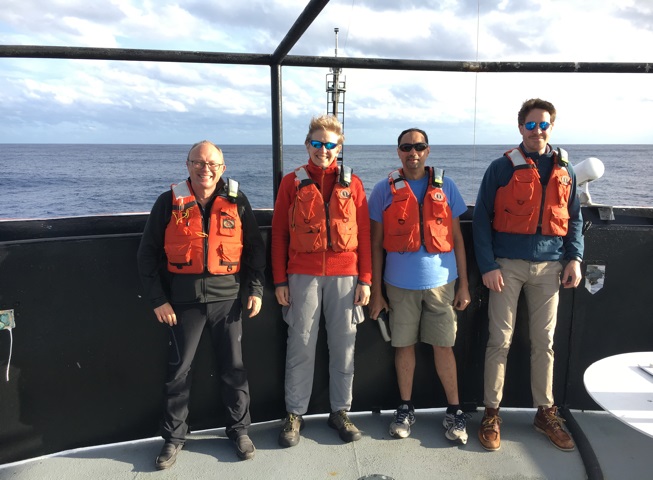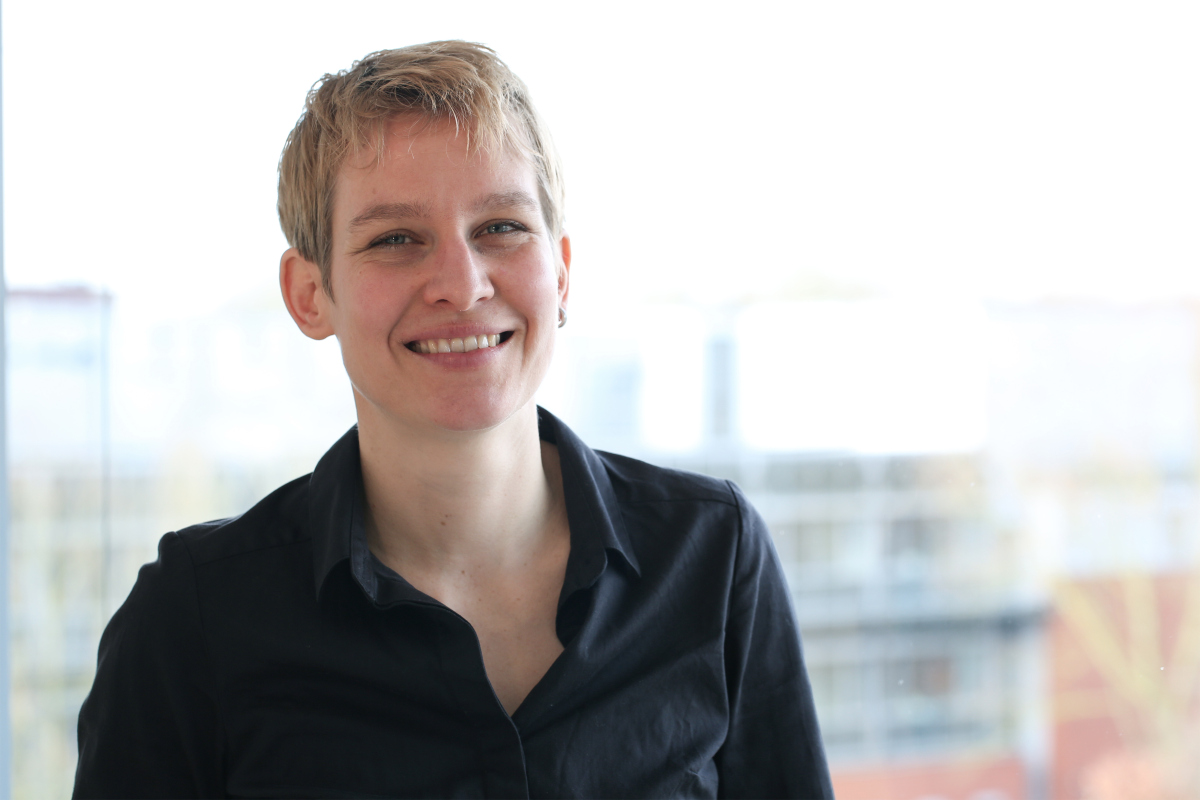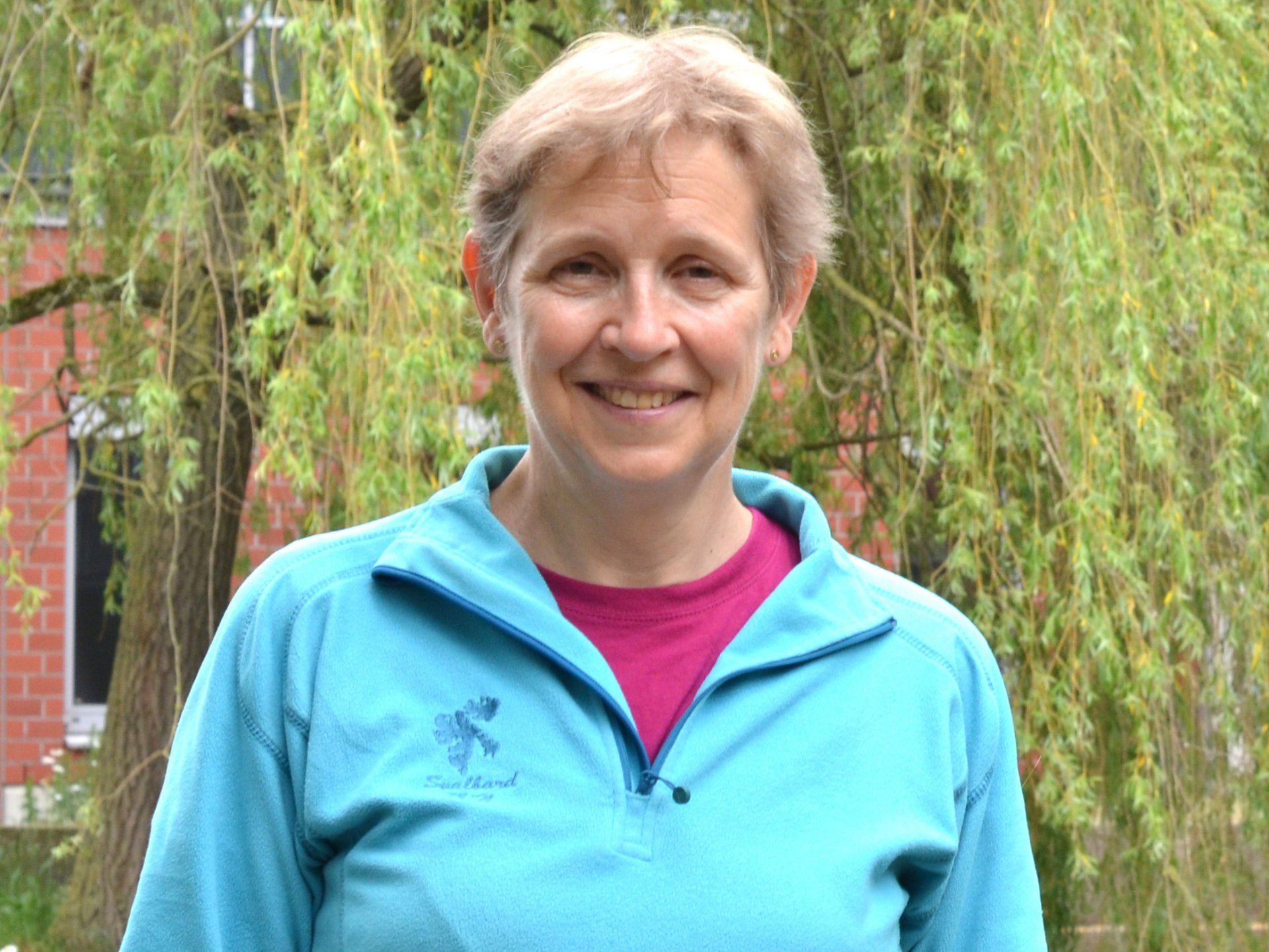- Press Office
- Press releases 2020
- Sabbatical in times of Corona
"Together we’re stronger" – Sabbatical in times of Corona
“I have always liked the Bremen Town Musicians’ motto,” says Carol. The American-born scientist has close ties to Bremen. Right after the founding of the local Max Planck Institute, she came to the Hanseatic city as a postdoc in 1993. At the institute, she developed a method to measure the degradation of complex algal sugars in the seafloor.
“I have had a strong connection to the Max Planck Institute in Bremen for decades; it has shaped my scientific career as well as my personal life,” says Carol. After all, she also met her husband here: Andreas Teske is a marine scientist as well. He did his PhD at the Max Planck Institute for Marine Microbiology (MPIMM) during Carol's first stay – he was the first doctoral student in Bremen of founding director Bo Barker Jørgensen. Since then, Carol has come back repeatedly: at this point, for a total of eight longer visits in Bremen, Bremerhaven, and Delmenhorst.
Carol Arnosti is now a professor at the University of North Carolina, Chapel Hill, on the east coast of the USA. The sabbatical is a sort of special leave from work. She uses this period, during which she does not give lectures at her home university, to pursue her research together with colleagues in northern Germany, at the Max Planck Institute in Bremen. She is staying at the Hanse-Wissenschaftskolleg (HWK) in Delmenhorst with her husband, who is currently a Fellow there, and their children. Despite the Corona restrictions, she and her family have decided to stay in Germany.
Her current stay centers on research into the degradation of large sugar molecules, the polysaccharides, that make up a major part of phytoplankton biomass. In cooperation with colleagues from the Department of Molecular Ecology, she is investigating the different degradation pathways of these sugars. “Sometimes bacteria degrade them very quickly, but sometimes they are only degraded under special conditions or only by specific bacteria,” Carol explains. How quickly and where exactly these sugars are degraded in the ocean has an effect on the carbon cycle. “My work in Bremen and in North Carolina deals with different aspects of this problem."
Fortunate timing: The work aboard ship is done
Last spring, Carol and her team went to sea aboard the research vessel Endeavor together with researchers from the Max Planck Institute in Bremen. They collected water samples in the North Atlantic and carried out a number of experiments at sea. “We were lucky to be at sea last year, because now almost all research ships are in port,” says Carol. Now she and her MPIMM colleagues analyze samples from the expedition in the laboratory. The corona virus has not halted this work. “The Max Planck Institute is running in reduced operation, so fortunately we can continue to carry out important measurements in the lab,” says Carol. “Desk work I can do from our apartment at the HWK in Delmenhorst. This way I can actually accomplish more than I would at home in Chapel Hill, because all the laboratories there have been closed since March. And for discussions with my colleagues at MPIMM, I don't have to worry about the differences in time zones.”
Carol's husband Andreas can also continue his work: He works together with colleagues in Bremen and Oldenburg, and at the HWK, he writes reports and publications about his research.

A different daily school routine on sabbatical
And the family? Carol and Andreas’ two daughters also feel comfortable here, despite the difficult current conditions. They were very much looking forward to their school visit in Germany, since over the past twelve years they have already spent six semesters in local schools in Delmenhorst, with many of the same classmates. Due to the school closures, this is now only partly possible, but at least the schools are starting to open again. “They enjoy their time here,” says Carol. “They have more freedom than in the USA, which also strengthens class cohesion. For example, they can move around easily by bicycle or bus – that's often not possible in the USA, you have to rely much more on a car. In spite of the restrictions imposed by the pandemic, it is easy for us to get by.” The older daughter even took extra classes last year so that she could return to her old Delmenhorst class. “Actually, it is very difficult in the USA to take a semester off in high school. That's why our older daughter organized ahead last year and took several additional high school courses in advance, she’s taking another one online. This way she could accompany us to Germany.”
Was it ever an option, especially at the beginning of the pandemic, to leave the country quickly and return to the USA? “No, we never considered that,” Carol says without hesitation. “Our daughters need their year-end report cards. In addition, my husband's family lives here, and the German health care system is excellent.” Then she allows us to look into her family history: “Andreas and I like to read thick tomes about historical topics. Reading them really shows that there have been much worse times in history. I also think about my grandfather, who as an officer cadet in World War I almost died of the Spanish flu, the last worldwide pandemic with which Corona is now so often compared.”
Carol’s conclusion: Even in times of Corona she can enjoy her sabbatical and do successful research. “We're very fortunate, and we’re doing well,” she sums up. “Of course, our stay would be even better if it had gone as planned. But I enjoy this time very consciously. Because who knows when I can come back here again – to my valued colleagues and the resourceful town musicians!”
The most recent publications from the collaboration between Carol Arnosti and colleagues at the Max Planck Institute for Marine Microbiology:
Arnosti C., Wietz M. Brinkhoff T., Hehemann J.-H., Probandt D., Zeugner L., Amann R. (in press): The biogeochemistry of marine polysaccharides: Sources, inventories, and bacterial drivers of the carbohydrate cycle. Annual Review of Marine Science
Reintjes G., Fuchs B.M., Scharfe M., Wiltshire K.H., Amann R., Arnosti C. (2020): Short-term changes in polysaccharide utilization mechanisms of marine bacterioplankton during a spring phytoplankton bloom. Environ. Microbiol. 22: 1884-1900. doi:10.1111/1462-2920.14971.
Reintjes G., Arnosti C., Fuchs B.M., Amann R. (2019): Selfish, sharing, and scavenging bacteria in the Atlantic Ocean: a biogeographic study of microbial substrate utilisation. The ISME J, 13: 1119-1132. doi.org/10.1038/s41396-018-0326-3.
Arnosti C., Reintjes G,. Amann R. (2018): A mechanistic microbial underpinning for the size-reactivity continuum of DOC degradation. Marine Chemistry: 206: 93-99. doi:10.1016/j.marchem.2018.09.008
Please direct your queries to:
Carol Arnosti
Max-Planck-Institut für Marine Mikrobiologie
[Bitte aktivieren Sie Javascript]
https://marine.unc.edu/people/faculty/arnosti/
Head of Press & Communications
MPI for Marine Microbiology
Celsiusstr. 1
D-28359 Bremen
Germany
|
Room: |
1345 |
|
Phone: |

